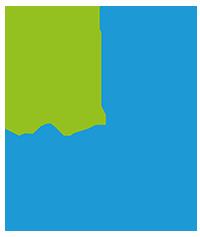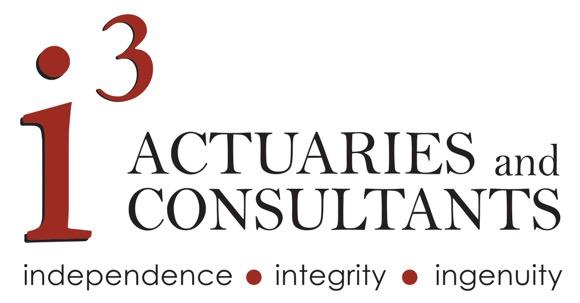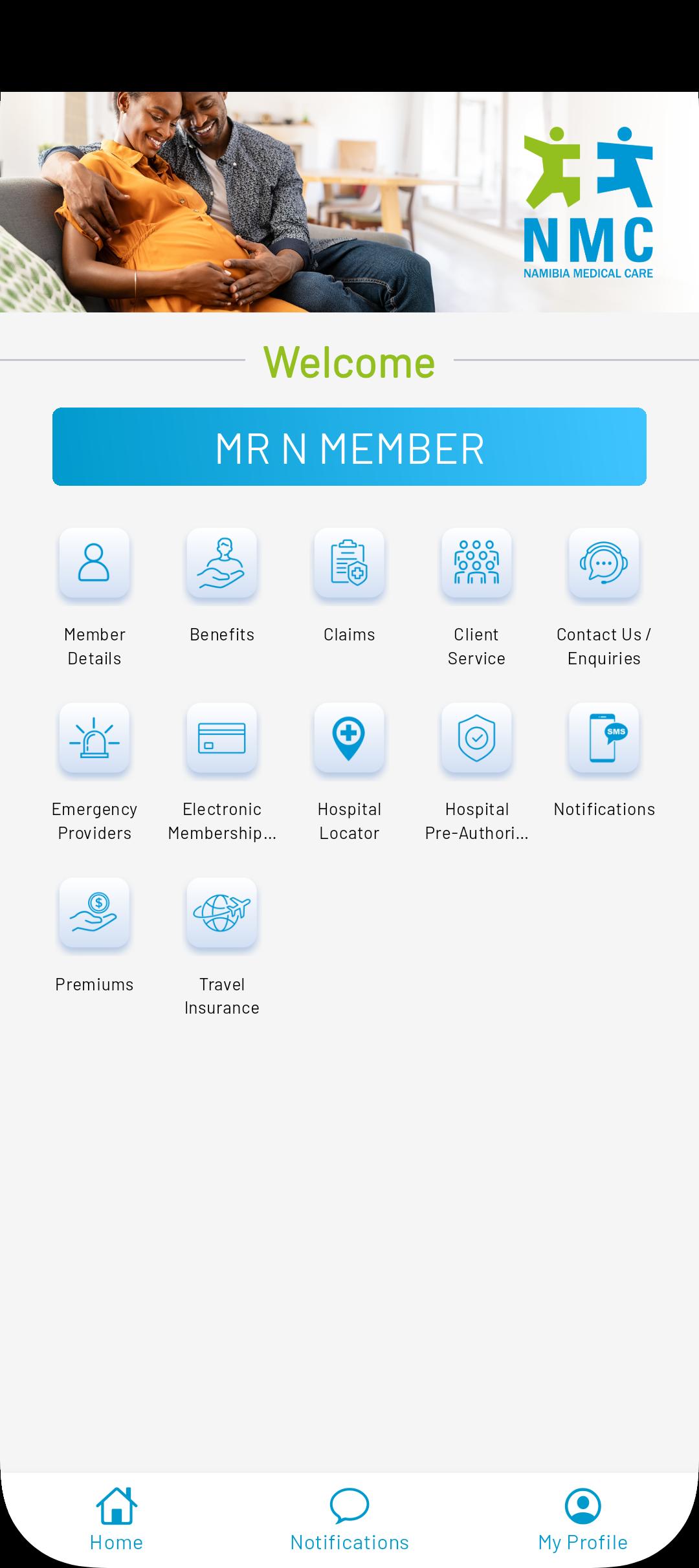






As it seeks to reshape Namibia’s healthcare offering by investing in enhanced digital and educational infrastructure, Namibia Medical Care is on a mission to improve national access to health services. Jo-Anne Crossman, Principal Officer, tells us more
Writer: Lily Sawyer | Project Manager:
Harry Thurlow
As the healthcare industry in Namibia undergoes one of the most active and transformative phases in recent memory, medical aid funds in the country have begun to fundamentally reshape how they operate, report, and govern.
Driven by the introduction of risk-based supervision from the Namibia Financial Institutions Supervisory Authority (NAMFISA), implementation of International Financial Reporting Standards (IFRS) such as IFRS 17, and key components of the Financial Institutions and Markets Act, a strong push towards modernisation, compliance, and sustainability has emerged.
At the same time, industry collaboration is increasing as healthcare authorities come together to address complex, systemic issues.
“Personally, I find this landscape incredibly energising. It demands
not only sound governance and regulatory navigation, but also forward-thinking solutions to enhance member access, ensure financial sustainability, and protect the integrity of healthcare delivery,” opens Jo-Anne Crossman, Principal Officer at Namibia Medical Care (NMC).
As one of the largest and oldest open medical aid funds in Namibia, NMC provides comprehensive healthcare coverage across the country.
No longer simply maintaining the status quo, organisations such as NMC are shaping a more efficient, transparent, and ethical healthcare system.
“This sense of purpose, coupled with technical complexity and room for innovation, makes healthcare in Namibia an incredibly compelling space to contribute to,” Crossman adds.

Established in 1995, NMC has grown to serve more than 35,000 main members and almost 40,000 dependants today.
As an open medical aid fund, it offers a range of medical aid plans designed to cater to a diverse range of healthcare needs.

The organisation emphasises fast and efficient service, ensuring claims, submissions, and payments are processed promptly and accurately.
“Our services are accessible nationwide, reflecting our commitment to serving the entire Namibian population,” Crossman prides.
As Principal Officer, Crossman forms part of a management team that also consists of five trustees, a Fund Manager, Office Manager, and a Patient Care Manager.
This extensive team, alongside offices in every major town and city, leaves NMC well-placed for continued success.
Employees are vital to NMC’s success, whilst the expertise of private doctors, nurses, and various other medical professionals in Namibia form the backbone of the care provided.
“Their care and expertise ensure our members receive the best medical treatment possible,” she reflects.
The client service, claims processing, and managed healthcare teams of Methealth Namibia Administrators, meanwhile, play a crucial role in interacting with members by handling enquiries and ensuring a positive experience.
As NMC’s administrator, Methealth Namibia Administrators, works hard behind the scenes in finance, IT, and logistics to ensure a smooth operation, enabling Namibian healthcare provider teams to focus on providing fist-class care.
“Our employees help us to remain up to date with the latest technologies,
and their dedication contributes to our productivity, staff retention rates, and quality of care,” Crossman insights.
In addition, by implementing proper governance structures and regulatory compliance across the organisation, NMC has maintained its competitive advantage.
As Namibia’s healthcare sector undergoes a significant digital transformation, major industry players are working to enhance service delivery and accessibility.
As such, the Namibian government
has initiated the National eHealth Strategy 2021-2025, aligning with the World Health Organisation’s Global Strategy on Digital Health which seeks to adopt appropriate, accessible, and sustainable digital health solutions.
Up-and-comers in the health FinTech space such as PatientCare and Dr MacQ seek to revolutionise healthcare access in the country through innovative digital platforms. By seamlessly combining telemedicine, artificial intelligence
Jo-Anne Crossman, Principal Officer: “My career spans over two decades, with a solid foundation in communications, marketing, and business development, predominantly in the healthcare and financial services sectors.
“I began in marketing and client service roles, which gave me a strong understanding of stakeholder engagement and operational coordination. However, it was my first appointment at Methealth Namibia Administrators in 2005 that sparked my passion for the healthcare industry.
“Being exposed to medical aid fund management, communication strategies, and regulatory compliance early on allowed me to see the direct impacts of effective healthcare administration on people’s lives.
“Over the years, I’ve advanced through several leadership roles, culminating in my current position at NMC in which I lead strategic and operational functions with a focus on governance, compliance, and stakeholder alignment.
“My Master of Business Administration and continued professional development have further empowered me to combine my business acumen with a deep understanding of the healthcare landscape.
“What keeps me invested in this field is its meaningful nature, helping shape sustainable, member-focused healthcare solutions whilst navigating a complex regulatory environment.
“It’s certainly a challenging space, but one that aligns with my strengths in leadership, strategy, and people-driven impact.”


“OUR SERVICES ARE ACCESSIBLE NATIONWIDE, REFLECTING OUR COMMITMENT TO SERVING THE ENTIRE NAMIBIAN POPULATION”
– JO-ANNE CROSSMAN, PRINCIPAL OFFICER, NAMIBIA MEDICAL CARE
pharmacy-to-doorstep delivery, these platforms address the needs of insured and uninsured members of the population by offering affordable and accessible health services.
“Telemedicine platforms not only transform patient experiences with accessible, dignified care but also empowers providers with intelligent AI tools, setting a scalable blueprint for the future of healthcare delivery in Africa,” Crossman assesses.
Despite these advancements in Namibia’s digitalisation journey, however, challenges persist. For example, the local expertise required to develop comprehensive health information systems is lacking, telemedicine regulations are currently non-existent, and there is limited budget allocation for developmental projects.
“These factors hinder the seamless integration of digital solutions across the healthcare system,” she surmises.
As Namibia continues to make strides towards digital inclusion, innovative initiatives such as digital IDs and community access points are providing solutions to overcome the barriers faced by underserved populations.
“Whilst challenges remain, ongoing efforts by both public and private sectors are paving the way for a more integrated and accessible digital health ecosystem,” Crossman observes.
In order to make the delivery of its healthcare services more efficient, NMC is actively investing in new processes.
Dedicated to enhancing care delivery through the integration of innovative technologies, the fund has made a notable advancement by introducing a mobile app designed to empower members with convenient access to services.
The app and web portals allow members to submit, view, and track healthcare claims in real time, locate providers, book appointments, and access medication programmes.
“These tools improve transparency, convenience, and turnaround times for both members and administrators,” Crossman shares.
Elsewhere, the roll-out of International Classification of Diseases (ICD)-10 coding, set for phased implementation in 2025, represents a critical shift for the

industry in its ability to standardise diagnosis codes across providers, administrators, and systems.
The aim of ICD-10 is to enable more accurate claims processing, improved disease tracking and utilisation analytics, and alignment with international medical billing standards.
“Medical aid funds are actively upgrading their systems, training staff and providers to prepare for compliance,” she insights.
NMC is also adopting real-time authorisation tools to allow providers to verify member eligibility, benefits, and limits at the point of service. This ensures faster decision-making, fewer claim rejections, and a reduced administrative burden.
An industry-wide push to integrate point-of-care pathology testing, telemedicine platforms, and provider practice systems is also underway to enable faster diagnosis and treatment, real-time clinical decision-making,
With a broad range of healthcare services designed to meet a diverse range of medical needs, NMC offers both traditional and new generation options.
TRADITIONAL – Six options – Sapphire, Ruby, Jade, Opal, Topaz, and Topaz Plus – cater to a full spectrum of needs, from basic to comprehensive coverage. Benefits typically encompass hospitalisation, major medical expenses, and day-to-day medical expenses.
NEW GENERATION – The fund’s Amber and Emerald plans offer extensive hospital benefits. For members seeking more comprehensive care, including day-to-day benefits, Amber Plus and Emerald Plus options are available.
Additional membership benefits include:
INTERNATIONAL MEDICAL TRAVEL INSURANCE – NMC provides its members with coverage for emergency medical expenses of up to NAD$10 million when travelling internationally.
ADDITIONAL HOSPITAL BENEFIT – This benefit pays a percentage of the excess of Namibian Association of Medical Aid Funds tariffs should a member be hospitalised to alleviate the financial burden.

i3 Actuaries and Consultants is a firm of actuaries and consultants, established to provide actuarial consulting solutions within the retirement, insurance and healthcare funding industries of Southern Africa.
The company was founded in November 2014 by Kobus Crous and Nico Smit, and was created on three main principles:
• Independence: No external influence or institutional shareholding
• Integrity: Always focus on the fund’s best interests
• Ingenuity: Well researched, informed and innovative consulting solutions.
Telephone: +264 (0)61 300358
Email: kobus@i3actuaries.com Website: www.i3actuaries.com
Unit 7, The Village, 18 Liliencron Street, P.O. Box 80560 Olympia, Windhoek, Namibia
Directors: N Smit, K Crous SAND CITY INVESTMENTS FIFTY (PTY) LTD Registration Number: 2014/0017





and reduced pressure on hospital infrastructure.
As such, the landscape is evolving quickly as it moves from manual, paper-driven systems to a digitally enabled ecosystem that prioritises efficiency, compliance, and member empowerment.
“These innovations not only improve the financial sustainability of NMC but also enhance the overall quality of healthcare delivery in Namibia,” Crossman explains.
Elsewhere, the fund is also undertaking a number of new educational projects to enable
members to take further ownership of their healthcare journey.
Educational programmes are designed to promote mindfulness, encouragement, and a community that fosters health and wellness.
As it looks to the future, one of NMC’s primary goals is to continue to improve its members’ understanding of the medical aid funds and benefits afforded by being a member, ensuring higher satisfaction and loyalty.
“We will use technology such as mobile apps and online portals to engage members and allow for easier access to health benefits,” She outlines.
NMC will also continue to utilise
technology to enhance operational efficiency, improve member services, and manage claims and healthcare delivery.
To continue adapting to a rapidly evolving healthcare landscape, NMC has several other key priorities and goals in place for 2025 and beyond.
In the interests of financial sustainability and growth, the fund aims to ensure long-term financial health by increasing solvency ratios and balancing contributions with claims.
Moreover, it seeks to grow and retain its membership base by targeting younger and healthier individuals, alongside underserved



“We also plan to improve access to our healthcare services by enhancing efficiency and accessibility to meet members’ needs,” Crossman asserts.
By promoting preventative care and wellness, NMC hopes to reduce the costs associated with long-term healthcare and improve member health, as well as implementing preventative health programmes to target chronic conditions and lifestyle diseases.
“This will be supplemented as we strengthen relationships with health professionals to enhance care quality and collaboration,” she adds.
To stay ahead of regulatory
changes and ensure full compliance with national healthcare policies, meanwhile, NMC is developing strategies to navigate competitive risks, ensuring long-term operational success.
member education, and efficient service delivery, we are creating a more sustainable, member-centric healthcare environment,” Crossman passionately concludes. populations.
It will also develop a robust risk management framework to protect the fund against economic, regulatory, and healthcare service disruptions.
In short, NMC is focusing on improving financial sustainability, expanding membership, enhancing care quality, adopting innovative technologies, and maintaining strong relationships with stakeholders
“By emphasising preventative care,

Tel: 061-233 575 admin@nmcfund.com www.nmcfund.com

